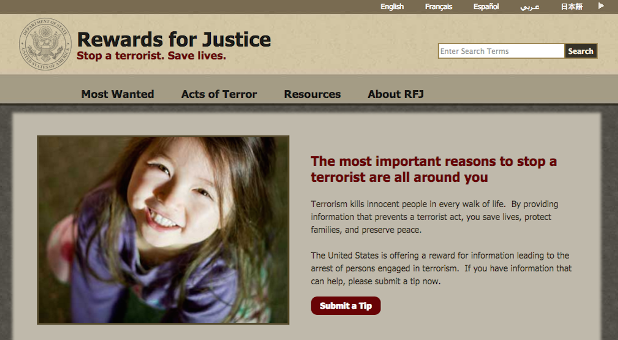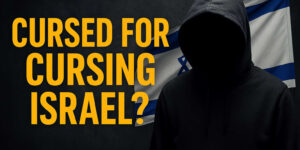See Something, Say Something—Unless This Faction Is Involved
One of the Obama administration’s least-known anti-terrorism programs was back in the news this week. After the capture of a fugitive Rwanda genocide suspect on Dec. 9, the news media noted that eight other Rwandan mass murderers are still on the run, and the State Department’s “Rewards for Justice” program is offering $5 million to anyone who provides information leading to their capture.
Paying tipsters may not be the single-most effective way to combat terrorism, but one should not dismiss the program’s contributions. Its website, www.RewardsForJustice.net, reports that more than 80 informers have received reward money. Nine “success stories” are described, including the capture of the 1993 World Trade Center bombing mastermind, Ramzi Yousef.
Nabbing killers like Yousef is important not only for the principle of justice, but because putting them behind bars keeps them from killing more people.
Yet if you take the time to look at www.RewardsForJustice.net, you notice something strange: one of the world’s most prolific group of terrorists is almost completely absent from the site.
There are plenty of Islamic State, Al-Qaeda, and Taliban terrorists featured on the site, alongside killers from their various offshoots and all sorts of terror gangs whose names are barely known to the wider world.
There are “most wanted” sections targeting various Saudis, Pakistanis, Qataris, Yemenis, Lebanese, Indians, Somalis, and practically every other national group under the sun.
Yet the group that invented international airplane hijacking in the 1970s, that pioneered suicide bombings in the 1990s, and is now leading the new wave of terrorism-by-kitchen-knives, is almost nowhere to be found. You almost need a magnifying glass to find any Palestinians on the State Department’s website.
Since the 1960s, Palestinian terrorists have murdered 138 American citizens, and wounded nearly 200 more, in 131 separate attacks. Many dozens of terrorists were involved in the attacks. Some are dead; some are in Israeli prisons. But many of them are alive and well—and some are serving in the Palestinian Authority’s (PA) security forces, according to Israeli government reports.
Of all these attacks, just two are described on the site—a 2003 attack on U.S. diplomats in Gaza, and the bombing of the Hebrew University cafeteria in 2002.
The many other Palestinian attacks on Americans are all grouped together in a single paragraph headlined, “Violence in Opposition to the Middle East Peace Negotiations, 1993 to Present.” There is no acknowledgment that the attackers were trying to kill Jews. The reader is told only that, “The intent of these attacks was to disrupt peace negotiations and to modify the attitudes of the leaders engaged in them.”
If their purpose was to “disrupt peace negotiations,” then how does the State Department explain the purpose of attacks that took place before there any such negotiations? Simple: it doesn’t. That’s why the listing uses the parameters, “1993 to Present”—so they don’t have to talk about pre-1993 attacks.
Throughout the website, there are photos of fugitive terrorists from Islamic State, Al-Qaeda, and other groups. That makes sense, since the entire website is the equivalent of a “Most Wanted” poster. You need photos and names, so that a tipster might recognize them.
Yet there is only one photo of a Palestinian terrorist on the site—an Islamic Jihad leader who resides in Syria, far out of the reach of American justice. Palestinian terrorist fugitives who reside in the areas controlled by the PA are the ones whose photos should be on the site. They are the ones who could be easily apprehended by the PA and extradited.
But that appears to be precisely the reason that their photos do not appear on the State Department website. Imagine if a Palestinian living in, say, Ramallah, noticed his next door neighbor’s photo on the site and decided to turn him in to get the reward money. What would the Obama administration do? Would it demand that the PA extradite him to the U.S. for prosecution? Would it put a PA policeman on trial in U.S. federal court?
Not a chance. Because doing so would undermine the administration’s entire policy of promoting the idea that the PA is moderate and anti-terror and should be given a state as soon as possible.
And so, even on a U.S. government website whose purpose is to catch killers of Americans around the world, one group of killers of Americans remains politically untouchable.
Stephen M. Flatow, an attorney in New Jersey, is the father of Alisa Flatow, who was murdered in an Iranian-sponsored Palestinian terrorist attack in 1995. For the original article, visit jns.org.






































